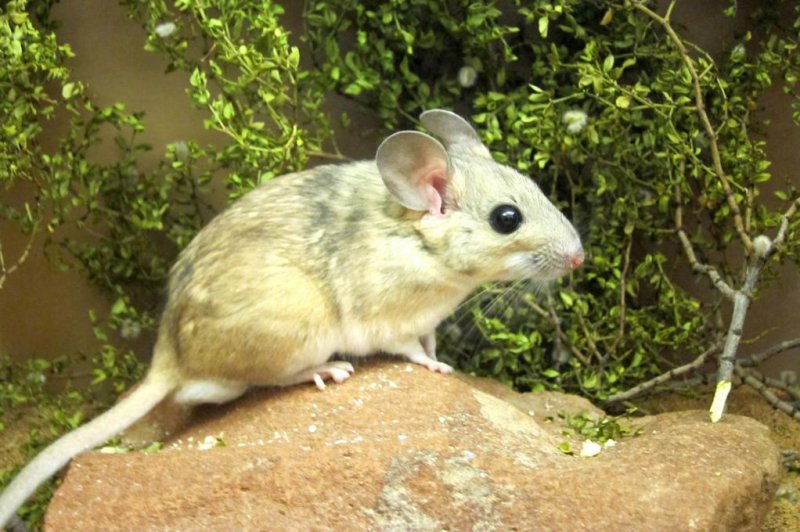The desert woodrat. (Kevin Kohl/University of Utah)
SALT LAKE CITY, July 22 (UPI) -- The desert woodrat of the Mojave desert in the Western United States subsists almost exclusively on poisonous plants -- plants that would, in equivalent amounts, make most other animals extremely ill. But the woodrats is perfectly content to fill its stomach with the leaves of the creosote bush, totally unaffected by the toxic resin that coats the plant's foliage.
Scientists have previously isolated liver enzymes as a key for other herbivores that digest toxic plants, but researchers suspected microbes in the gut also helped mammals break down poisons. A new study by researchers at the University of Utah proves as much.
In lab tests, woodrats were not able process creosote leaves after antibiotics mitigated the beneificial gut microbes. Likewise, woodrats raised in captivity and unadapted to the consumption of creosote were able to eat the poisonous leaves after being gifted specific transplanted microbes.
The study -- published in the journal Ecology Letters -- suggests mammals previously incapable of eating poisonous leaves can acquire tolerance.
"Mammals acquire microbes during birth, through contact with their mother's vaginal and fecal microbes," explained lead author Kevin Kohl. "Other possible places to get microbes include leaf surfaces, the soil or feces that woodrats collect from other animals."
The study has significant implications for agriculture. As natural food sources become more scarce in the arid lands of the West, domestic animals like sheep and cattle could potentially benefit from gut microbes that help them digest toxic plants.
"Juniper is expanding its range, and ecologists and land managers are concerned," Kohl said. "Farmers are interested in getting their sheep and goats to eat juniper."
Additionally, the experiments point to another potential consequence of filling cattle full of antibiotics, drugs that could deplete the mammals' ability to digest toxic grasses and leaves.















